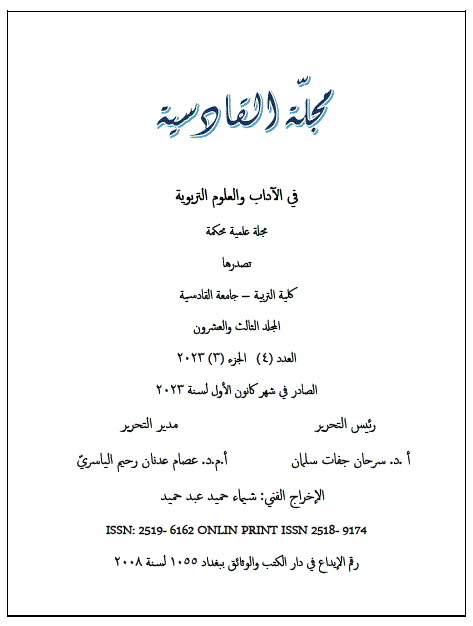اثر استراتيجية (M.U.R.D.E.R) في تحصيل طلاب الصف الخامس الاعدادي في مادة القران الكريم والتربية الاسلامية وتنمية ذكائهم الأخلاقي
Abstract
The current research aims to identify “the effect of the (M.U.R.D.E.R) strategy on the achievement of fifth grade middle school students in the Holy Qur’an and Islamic education and developing their moral intelligence.” For the purpose of verifying the goal of the research, the researcher set null hypotheses. In order to verify these hypotheses, the researcher conducted an experiment and adopted the experimental method. With partial control for equal groups with the post-test for Islamic education subject achievement and the pre- and post-test moral intelligence scale, the research sample was represented by fifth grade students in Al-Mansour Preparatory Boys’ Day School affiliated with the Salah Al-Din Education Directorate - Baiji Education Department, distributed into two sections, one of which represented the experimental group (32). One student studied according to the (M.U.R.D.E.R) strategy, and the second represented the control group (34 students), and parity was conducted in the variables (chronological age, academic achievement for the previous year, intelligence, educational level of parents, and pre-moral intelligence scale(.
The researcher prepared two research tools: the multiple-choice achievement test consisting of (40) items. The values of difficulty, discriminatory power, and effectiveness of the alternatives were calculated for each item of the achievement test, as well as its stability and the moral intelligence scale consisting of (68) items, and the honesty and discrimination calculation. Its stability was also extracted. The research experiment was implemented in the first semester, and the researcher assigned the subject teacher to teach the two research groups himself. After completing the experiment, the results were analyzed statistically using one-way analysis of variance and the Scheffé test. The results showed that the students of the experimental group were superior to the students of the control group in the achievement test and the moral intelligence scale. There were differences between the pre- and post-tests of the moral intelligence scale for the experimental group, in favor of the post-test.









